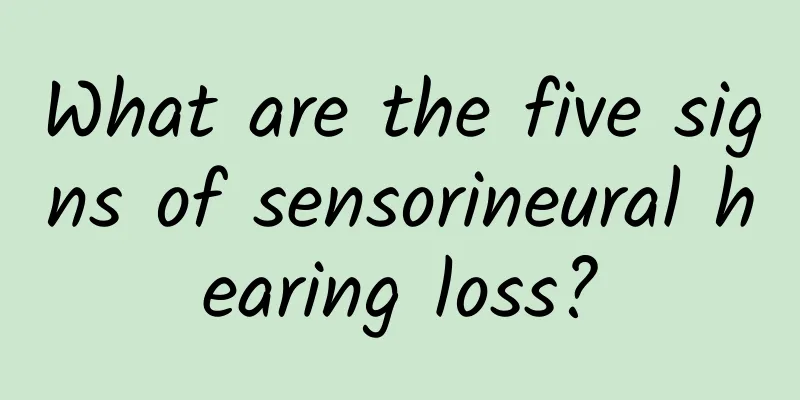How to treat aerotitis media? Early treatment is more effective

|
Aerotitis media is common among passengers on airplanes. Patients will feel a blockage inside the ear, and experience ear pain, tinnitus, and dizziness. Aerotitis media must be treated as early as possible, and the treatment of aerotitis media is also very simple. 1. Treatment methods After aerootitis media occurs, the earlier the treatment is started, the better the treatment effect and the simpler the treatment required. During treatment, actions such as swallowing, chewing, and yawning can be performed. Vasoconstrictors such as ephedrine can be dropped into the nose; those with tympanic effusion or blood accumulation should undergo tympanic membrane puncture and aspiration under sterile conditions; those with tympanic membrane perforation should plug the external auditory canal with a sterile cotton ball, keep it dry, and apply systemic antibiotics to wait for it to heal on its own; those who cannot heal on their own can undergo tympanoplasty. For patients who suffer from aerotitis media repeatedly, the cause should be found and eliminated. 2. Reasons why the pressure inside and outside the middle ear cavity cannot be quickly balanced: Eustachian tube dysfunction (diseases such as upper respiratory tract infection, rhinitis, sinusitis, nasal and nasopharyngeal tumors), changes in aircraft altitude, and rapid descent of the aircraft can all lead to the disease. In addition, sleeping passengers, unconscious patients, and crew members who are overly focused are also prone to ear barotrauma. Subjective symptoms include a feeling of blockage in the ears, tinnitus, ear pain, hearing loss, dizziness, etc. The examination findings vary in severity and may include congestion and retraction of the tympanic membrane, tympanic effusion (thin golden serous secretions), or hemotympanic cavity (rupture of mucosal blood vessels and accumulation of fresh blood in the tympanic cavity). In severe cases, rupture of the tympanic membrane may occur. 3. Prevention: Before boarding a plane, apply ephedrine nasal drops to reduce swelling of the Eustachian tube mucosa; when the plane is descending, swallow, chew, yawn and other movements more often. If you feel that the symptoms have not been eliminated, pinch your nose with your thumb and index finger, close your mouth, and exhale forcefully to allow the air flow to open the Eustachian tube and enter the air cavity of the middle ear to eliminate symptoms such as stuffy ears, heavy ears, and ear pain. If you have a cold or Eustachian tube dysfunction, it is best to wear Alpineflyfitearplugs (flight decompression earplugs) when flying to relieve the pressure generated during takeoff and landing. |
<<: What is catarrhal otitis media? It has these common symptoms
>>: The difference between tonsil ulcer and suppuration, let you know
Recommend
The efficacy and function of traditional Chinese medicine Jianqu
Chinese medicine is extensive and profound, and m...
What to do if you have belly button pain and diarrhea
When the human body eats unfresh food, it is easy...
Pain in the middle of the abdomen during non-menstrual period
When many girls have their period, they usually e...
Nature and flavor of safflower
Many women are familiar with safflower, which is ...
How to scrape the belly
The Chinese have a very traditional ancient healt...
Why do I feel cold in the lower back and kidneys?
If you find that the two kidneys in the lower bac...
Symptoms of a low-grade fever
In life, low-grade fever is a very common disease...
Causes of varicose veins
Varicose veins are a common disease that causes g...
What causes dry skin syndrome?
Xerosis cutis is a chronic autoimmune disease tha...
There is a small hole after squeezing the acne on the face
Acne is a very annoying skin problem. Many people...
Medicinal effects of Scorzonera
You may not know about Scorzonera, but everyone k...
Neck twisting technique
The neck is an important part that connects the t...
After thyroid cancer surgery
When every disease first occurs, the doctor will ...
Causes of dull abdominal pain at 35 weeks of pregnancy
At 35 weeks of pregnancy, the baby is about to be...
What are the benefits of drinking hot chocolate?
Hot chocolate is the hot cocoa that everyone drin...









